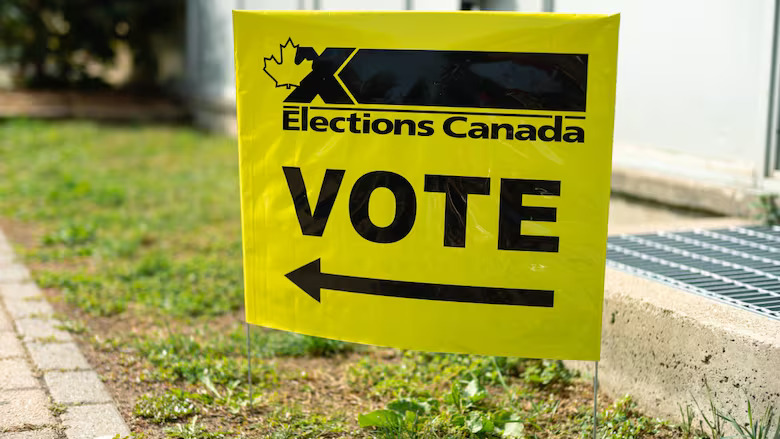‘Even if you’re voting the same thing as your parents, you’re still getting the habit of voting into you’
Juliette Belisle-Greetham has waited a long time for this — the first federal election in which she’ll cast a ballot.
Belisle-Greetham, 20, lives in Whitehorse and she credits her family for sparking her interest in politics at a young age.
“They’ve really taught me to care about what’s happening in our country, and also be really open to people’s differences,” she said.
Belisle-Greetham knows she’s not the only one who found a passion for politics and civic engagement in their teens. That’s why she got involved with Vote16, a national campaign to lower the legal voting age, from 18 to 16.
At 16, Canadians are “already getting a lot of rights,” she said — including the right to drive, and to consent to sexual activity. Belisle-Greetham said voting should be added to that list.
She said she also believes lowering the voting age could help promote more long-term involvement in the electoral process. That’s because she thinks 16-year-olds are as likely, if not more likely, than 18-year-olds to pay attention to politics — and therefore become lifelong voters.
At 18, many people move away from home for school or other reasons, she said.
“They’re not as close to their communities. So they’re not really aware of what’s going on. And often it’s a very busy time in their lives, so voting is not their priority,” she said.
“It is proven that if you vote your first election, you’re most likely to be of a lifelong voter. And we know in this country we need higher voter participation.”
Tristan Gagnon, a Grade 11 student at Whitehorse’s Centre Scolaire Secondaire Communautaire Paul-Émile-Mercier, agrees. He takes a course in social justice at the school, and this month, the class has been inviting Yukon’s federal candidates to come talk to them.

He said he thinks lowering the voting age to 16 would be “fairly great.”
“There’s many other things you need to think about when you’re just a new adult. So when you do it when you’re 16, it’s much simpler to just go over there and vote,” Gagnon said.
“Even if you’re voting the same thing as your parents, you’re still getting the habit of voting into you. So once you’re not living with your parents anymore, you can like, form more of your own opinions.”
Zara Zedda, a classmate of Gagnon, said she also comes from a family where politics is always a big topic of conversation at the dinner table. She said she would “100 per cent vote,” if she could.
Young people need a voice, she said.
“Otherwise it’s mostly just going to be like old people picking old people. And then it’s just the same thing that happens over and over again,” she said.

Sixteen-year-old Asher Johnson, also a student in Whitehorse, is more skeptical about lowering the voting age. He said he pays a lot of attention to politics and would “love” to be able to vote in this election, but he’s not sure about some of his peers.
“I would be worried of how easily young people who don’t really care about politics … their vote could be swayed, or their vote could be, not bought literally, but kind of bought in a metaphorical sense by someone just telling them something that they don’t know much about.”
Youth vote could encourage ‘different tone’ on some issues, expert says
Cheryl Milne, executive director of the David Asper Centre for Constitutional Rights at the Faculty of Law at the University of Toronto, said there are many potential benefits to lowering the voting age. For example, she said, it would encourage politicians to pay more attention to issues that matter to young people.
She cited things like climate change and education as issues that might “take on a different tone or importance” if young people had a greater say in the political process.
“I don’t really see in this current election anything that is really focusing on young people’s issues in particular, or taking into account even particular ways they would want to communicate,” Milne said.
She also said it’s tough to argue that young people don’t know enough to deserve the vote. She said that’s an unfair standard.
“We don’t expect adults to have a certain level of education before they can vote. We don’t even have expect them to have a certain level of competence before they can vote,” Milne said.
Belisle-Greetham agrees. She said that it shouldn’t be a question of restricting the vote because young people might be more easily swayed or manipulated. The way to address those concerns, she said, is to encourage everybody, including younger people to “know how to evaluate information in a misinformation environment.”
“It would be good to be educated on history in a way, and understand that sometimes there’s like, cycles that are happening in our history, and to learn how to decipher misinformation — and being able to think for yourself really, and being able to analyze what you’re hearing and have some critical thought,” she said.
